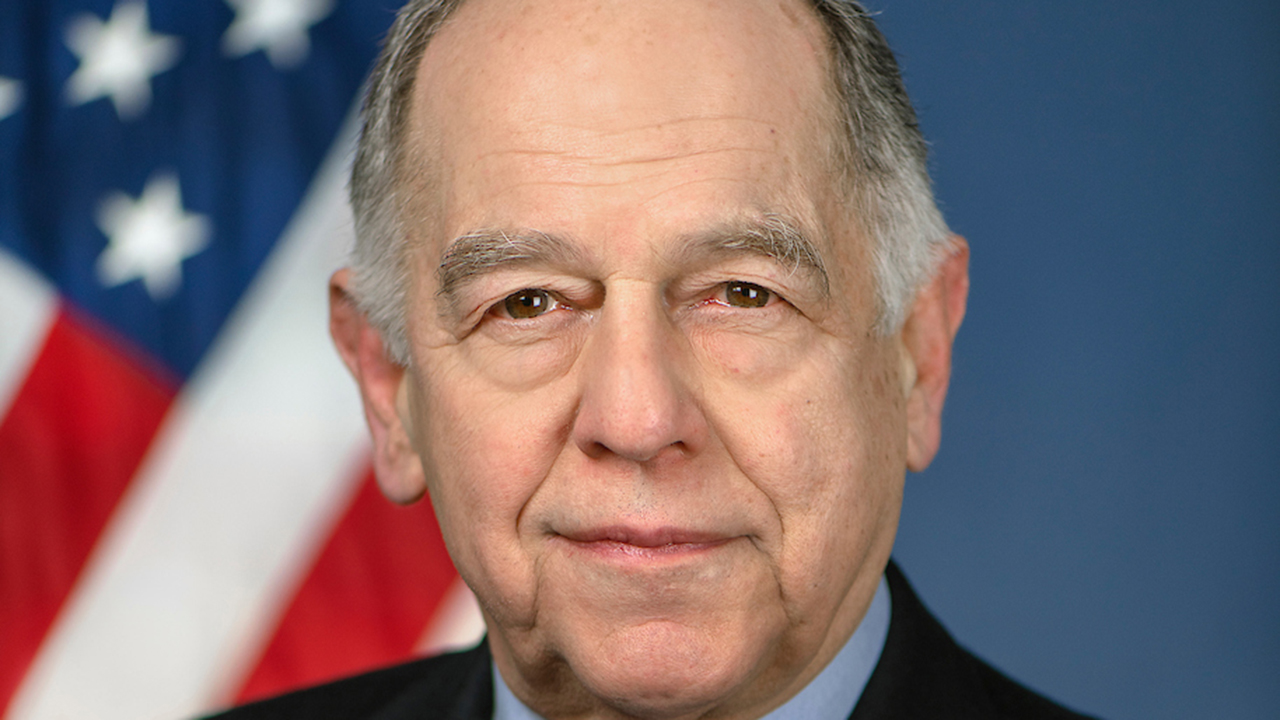
Service is Job One, But What About Rates?
Written by Dr. William Huneke, Consulting Economist
STB Chair Martin Oberman
“But first, while time does not permit me to cover all of the issues on the Board’s agenda, I want to discuss what, in my view, is of uppermost concern to the Board: the dramatic service problems that prevailed during 2022 and that dominate much of the STB’s work.” – STB Chairman Oberman in National Association of Railroad Shippers speech, May 25, 2023
Reading Chairman Oberman’s recent NARS speech that railroad service issues were now his agency’s top priority reminded me of old Ford commercials from the 1980s that touted “Quality is Job 1.” Back then, Ford was facing quality issues. There was a quip that FORD stood for “Fix or Repair Daily” or “Found on Road, Dead.”
The railroads’ recent service issues have stressed their customers and STB, so it is not surprising that Chairman Oberman would say he and his agency are focused on railroad service. But there are significant differences between railroads today and Ford in the mid-1980s: Ford did not face a regulator that could issue service orders.
If Ford’s products did not meet the quality requirements of its customers, those customers could switch to another auto company’s product, often a Japanese car. Back then, as newlyweds who were driving a Mustang and a Buick, the first car my wife and I jointly acquired was a Toyota Corolla.
To some extent, railroad customers dissatisfied with railroad service can also switch to other service providers, such as another railroad or a motor carrier or a water carrier. That is not always possible, and in recent years dissatisfied customers can complain to STB.
I wrote about one case, Sanimax, previously in Railway Age (Just What Does STB Consider ‘Reasonable’?). That case involves Union Pacific reducing service to Sanimax from five days per week to three days per week. Sanimax did not like the reduction and complained that UP was having trouble even meeting the reduced, three days per week, standard.
One aspect has always bothered me about the Sanimax case and indeed greatly concerns me about STB’s focusing on service: the rate side of the ledger. Does UP charge the same rate for three-day service as for five-day service? If five-day service is a more premium service level than 3-day, shouldn’t UP be entitled to a rate premium?
Similarly, I read the recent Common Carrier bill co-sponsored by Senators Tammy Baldwin (D-Wisc.) and Roger Marshall (R-Kan.). As many readers know, the railroads’ common carrier obligation requires carriers to provide service upon “reasonable request.” The Baldwin-Marshall bill would define the common carrier obligation because “the current ambiguity around the common carrier obligation … [has] contributed to insufficient rail services …”
The bill directs STB to enforce the common carrier obligation following several considerations that stress the service needs of rail customers. It instructs STB to consider how crew and equipment availability affects service, particularly the effect of any reductions in crew or equipment. STB should also consider how “the service reasonably meets the local operational and service requirements of the person requesting transportation or service that are consistent with the person’s needs and requirements …”
For the railroad’s benefit, the bill directs STB to consider “whether any conditions imposed by the rail carrier as requirements for service are required to meet the local service requirements of the person requesting service or permit the rail carrier to recover its variable cost of providing the requested transportation or service …” STB should also evaluate “the commitment of the person requesting transportation or service of equipment or other resources to support the transportation or service.” However, my reading of the bill is that seven of the considerations stress the customer’s service requirements and only two consider the railroad’s needs.
What I do not see in the bill: any mention of rates. What happens if during the commercial discussions, the railroad decides that the shipper’s service requirements really require higher quality service that entails a service premium? Would this rate increase turn a service dispute into rate litigation? In many instances, no.
STB has a jurisdictional threshold of 180% revenue divided by variable cost. That threshold means about two-thirds of rail traffic is not subject to STB rate jurisdiction. That is a statutory requirement, meaning Congress would have to pass a change in STB’s statutes. STB cannot change this threshold on its own initiative.
STB also has no rate jurisdiction over traffic moving under contract or traffic that the agency has exempted. Now, STB can revoke the exemption and bring the traffic back under its jurisdiction as it has done in the Sanimax case.
So, in the exceptional instance that a customer could bring a rate case, that customer could bring a rate complaint to STB. Rate litigation has been largely extinct because of expense and time. STB has put in place a final offer arbitration option, but what shipper is prepared to take that untried route?
Shippers being commercial players no doubt understand there is generally a correlation between price and quality. Many these days doubtlessly may feel they are not getting their money’s worth for the current tradeoff.
Railroad service was in crisis in 2021 and still has many issues to work through. STB has justifiable concerns regarding service as does Congress, but focusing on service without a recognition of the rate implications is too short-sighted.

Dr. William Huneke is the former Director and Chief Economist at the Surface Transportation Board. He has more than 40 years’ experience in economics, transportation, railroad regulatory policy, management consulting, business analysis and teaching in the commercial and government sectors. He provides economic consulting on regulatory and arbitration matters. At the STB, Dr. Huneke led the Board’s analytical work and oversaw the collection of economic and financial data. Since leaving the STB, he has provided economic and litigation support to Class I railroads and other private-sector clients. He worked with the OECD (Organisation for Economic Co-operation and Development) to advise the Mexican government on its future rail regulatory policy. He represented the United States at an OECD conference on railroad industry structure. His private-sector experience included executive and management positions at UUNET, Freddie Mac and the Association of American Railroads. Dr. Huneke has taught graduate business courses at the University of Maryland, Robert H. Smith School of Business. He holds a doctorate from the University of Virginia and a B.A. from Swarthmore College. Dr. Huneke wrote the introduction to Railway Age Capitol Hill Contributing Editor Frank N. Wilner’s new book, “Railroads & Economic Regulation.”



